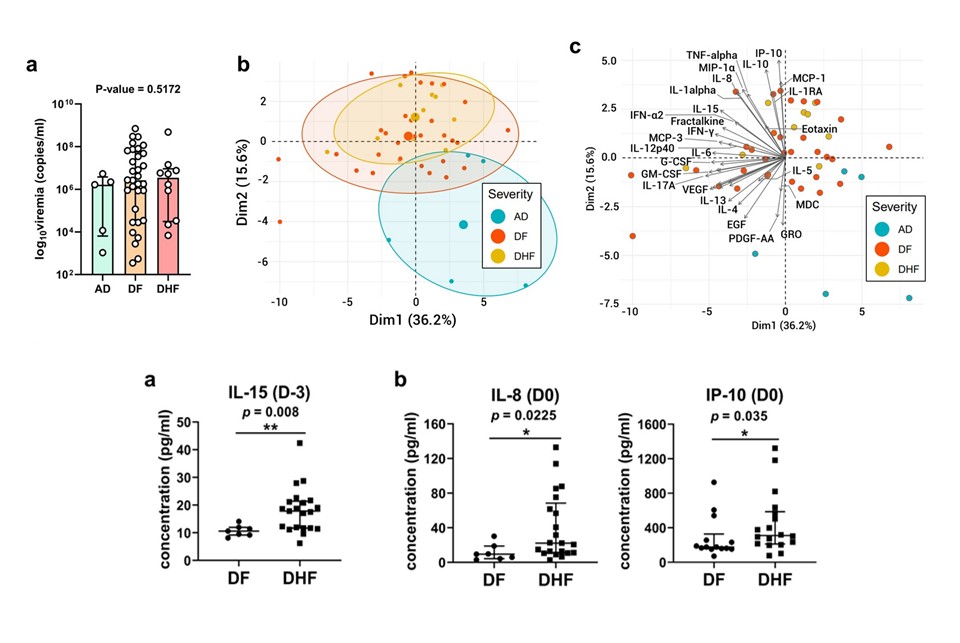Why Do Dengue Cases Range from Mild to Life-Threatening?

“Selected figures from the study illustrating immune profile differences and potential biomarkers”
Although dengue, a mosquito-borne disease, affects hundreds of millions globally each year, its severity can vary drastically—from silent, symptom-free infections to severe cases marked by hemorrhage and organ stress. A recent study titled “Cytokine and chemokine kinetics in natural human dengue infection as predictors of disease outcome”, published in Scientific Reports (Full article available: Here), offers new insight into this variation by examining how the immune system responds across different forms of the disease, using data from the DENFREE Thailand cohort.
Researchers tracked 41 immune-related proteins in individuals with asymptomatic dengue (AD), mild dengue fever (DF), and severe dengue hemorrhagic fever (DHF). Their analysis revealed that AD patients exhibited significantly lower levels of inflammatory and antiviral signals, suggesting a more regulated immune response. In contrast, symptomatic individuals—especially those with DHF—showed heightened immune activity during the acute phase, resembling an immune “storm” that may drive disease progression.
A key finding was the early rise of one signal, IL-15, in DHF patients—appearing three days before fever subsided—which could serve as a useful early warning marker for severe dengue. Persistent elevation of other signals, including IL-8 and IP-10, during the critical phase also appeared linked to more serious complications.
By mapping these immune dynamics, the study offers a clearer understanding of why dengue outcomes vary and opens new avenues for predicting high-risk cases before symptoms become life-threatening.
First Author: Natnicha Jiravejchakul
Co-author: Waradon Sungnak and Vimvara Vacharathit
Corresponding Author: Ponpan Matangkasombut

